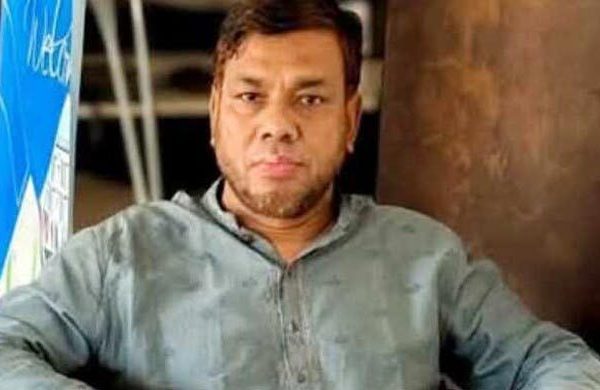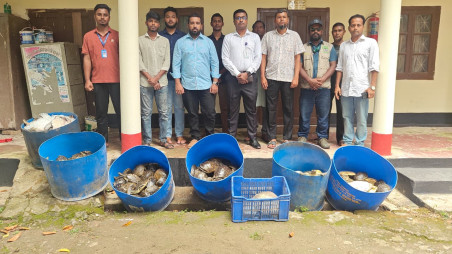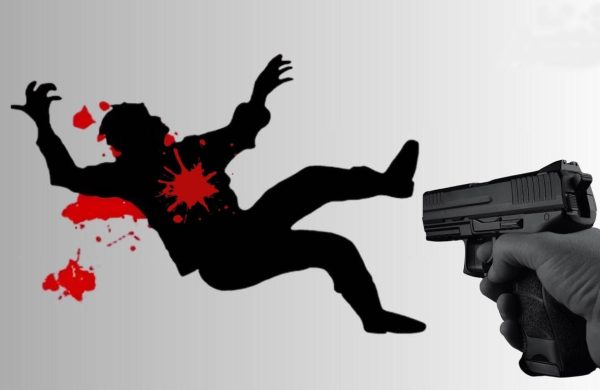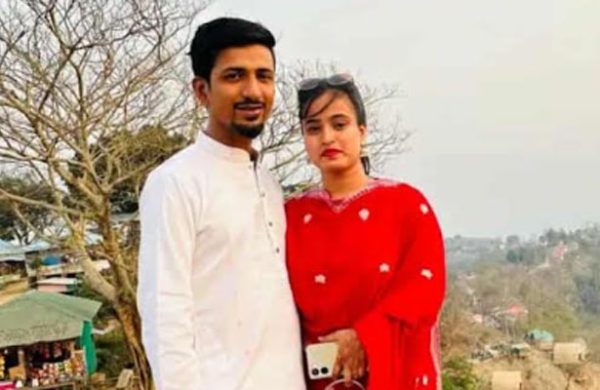In every district, godfather Kamal was ‘Sardar’
- Update Time : Tuesday, July 15, 2025
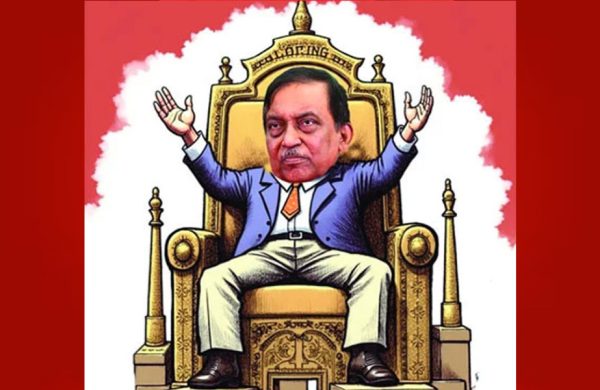
TDS Desk:
During the 15-year rule of the Awami League, Bangladesh was a state of looting and mafia control. Every parliamentary constituency was held hostage by a mafia. It wasn’t the country’s existing law or judiciary that prevailed, but rather the commands of local terrorist mafias and drug dealers that governed each electoral area. These MPs, who came to power without votes, were not people’s representatives but agents of mafia-terror groups. In many areas, people had no right to speak.
The laws, rules, administration—everything in those areas ran as per the will of the mafia sardar. Police recruitment was done in such a way that it would please the mafia leader. Through DO (Demi-Official) letters, mafias would appoint their preferred OCs, SPs, DCs, and UNOs. Their main job was to safeguard the activities of the mafia network.
Anyone who spoke against them would be choked. Dissent was ruthlessly suppressed. And the godfather of all these mafias was Asaduzzaman Khan Kamal. His job, as then Home Minister, was to ensure that these mafias could commit all crimes under the shelter of law enforcement agencies.
In Narayanganj, the mafia sardar was Shamim Osman; in Rupganj, Gazi Golam Dastagir; in Jamalpur, Mirza Azam; in Tangail, Chhoto Monir; in Noakhali, Ekramul Karim Chowdhury; in Magura, Shikhor; in Feni, Nizam Hazari; in Comilla, Tazul Islam; in Chattogram, Saifuzzaman Chowdhury; and in Cox’s Bazar, Bodi.
In this way, the entire country seemed divided into 300 segments. Each area had its own godfather. The police force of the country was made loyal to them. This mafia system was institutionalized by Asaduzzaman Khan Kamal.
In the second term of the Awami League’s three-term rule, Kamal first became State Minister for Home. But he quickly won the hearts of his mafia network. In a short time, he proved he would not serve the people. His responsibility was not to ensure public safety but to protect Awami terrorists, looters, and drug traders.
His main aim was to ensure they could loot freely, build mountains of wealth, and smuggle that wealth abroad. That’s why he was quickly promoted from state minister to full minister. Not just in the history of the Awami League, but in all of Bangladesh’s politics, no one rose so fast from state minister to full minister. Once full minister, Asaduzzaman Khan ruled over a reign of terror. Looting and mafia rule were established nationwide.
Asaduzzaman Khan’s crimes were divided into several parts. First, he arranged to collect regular payments from all police recruitments and postings. He also took large bribes for recruitment and transfers in other law enforcement bodies like Ansar.
He earned large sums from new recruitments—not based on merit or tests but on lists he controlled. These lists didn’t just contain Kamal’s favorites; the mafia circles across the country sent names and bags of cash. Kamal worked according to those. Slowly, under his reign, the law enforcement agencies lost neutrality. The police turned into an Awami police force. RAB turned into a tool of suppression. Kamal also created an “Awami Bahini” (Awami Force).
Another of Asaduzzaman Khan’s crimes was suppressing dissent. Taking office, he launched operations against religious scholars under the guise of countering militancy. He staged “militancy dramas” to label them as extremists and killed many through these fake operations. On one hand, Kamal introduced the crossfire system—any opposition would be eliminated through crossfire. On the other hand, he staged jihadist dramas. His main aim was to suppress the opposition through these.
To suppress dissent, the former Home Minister established a reign of disappearances, murders, and terror. Anyone who spoke against Kamal or his mafia syndicate faced brutal consequences. We all know about the disappearance of Ilias Ali. He was abducted simply for opposing this mafia regime. Not just him—BNP Standing Committee member Salahuddin Ahmed was also abducted. But miraculously, he survived—he was left in India, where Indian authorities rescued him.
Bashundhara Media was the first to speak out against Asaduzzaman Khan Kamal. Across the country, Bashundhara Group began publishing reports against various Awami terrorists. Kamal directly threatened Bashundhara for these reports. He threatened to shut down Bashundhara Media. Not only that, he warned that Bashundhara Group would be sent to the “Aynaghar” (torture chamber), and forcibly disappeared. In this way, anyone who spoke against Kamal’s mafia network was persecuted.
To carry out his corruption, looting, and crimes without hindrance, Kamal worked to become Sheikh Hasina’s most trusted aide. To gain that trust, he emerged as “Butcher Kamal” and mercilessly cracked down on the opposition. He filed case after case, jailed opposition members, and created records of persecution. Kamal was the first Home Minister to institutionalize the culture of “ghost cases.” He became so reckless in filing cases that he couldn’t tell who was alive or dead. He even made deceased people accused in murder cases.
During his 10-year tenure, Kamal filed 127,000 cases against opposition leaders and activists across the country. Needless to say, these were fake, false, and politically motivated. There’s hardly a BNP leader not arrested under these cases—from Secretary General Mirza Fakhrul Islam Alamgir to the grassroots workers—none were spared from Kamal’s wrath.
The foundation of Kamal’s network was the mafia godfathers installed in every constituency. They provided the information, and Kamal ordered the police to arrest whoever they identified. This way, looting, terror, and drug trade thrived across the country, while the opposition was completely silenced from protesting for democracy or rights. Ordinary people were held hostage to these mafia MPs who came without votes. During Asaduzzaman Khan Kamal’s reign, law and order didn’t exist. The country became a land of terror. Terrorists roamed fearlessly, while innocent citizens lived in fear.
Another major crime of Kamal as Home Minister was indiscriminately granting arms licenses to Chhatra League and Jubo League. Investigations show that during Kamal’s 10-year tenure, around 32,000 arms licenses were issued—mostly to Awami League, Jubo League, and Chhatra League cadres. These weapons were used to crush opposition movements. Not just that—Kamal also distributed illegal weapons among these groups. Whenever police raised concerns about illegal arms, Kamal instructed them to ignore it.
Thus, during movements against the government, both police and Kamal’s “helmet force” (armed ruling party youth) attacked opposition. This way, Kamal created a “parallel terrorist force.” A Home Minister’s job is to “punish the wicked and protect the good”—but under Kamal’s rule, it was “protect the wicked, punish the good.”



